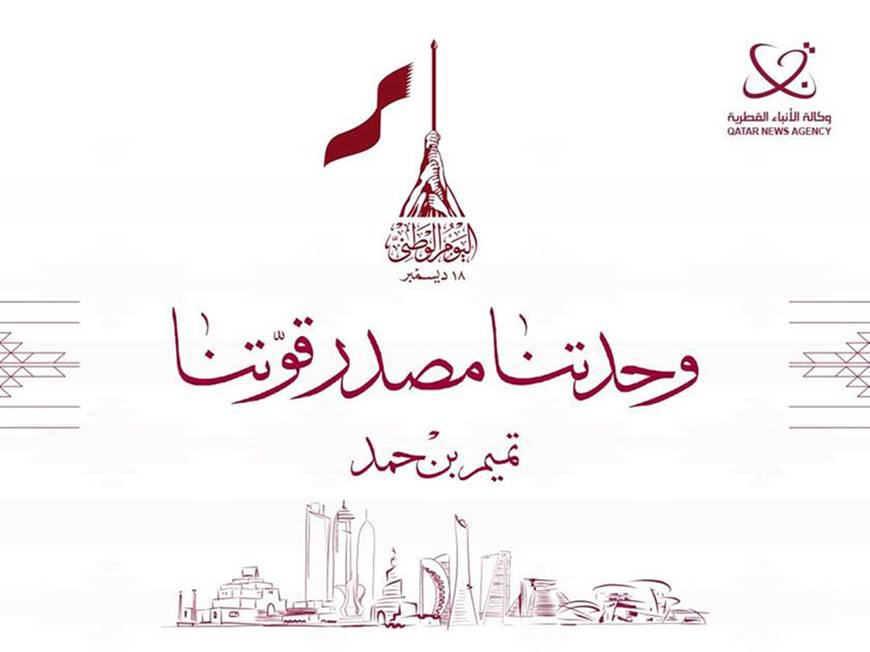ID :
650851
Sat, 12/17/2022 - 14:49
Auther :
Shortlink :
https://www.oananews.org//node/650851
The shortlink copeid
On Occasion of Arabic Language Day... Experts to QNA: Arabic Possesses Requirements of Promoting Digital Content

Doha, December 17 (QNA) - Experts and academics emphasized that the Arabic language possesses flexibility and the ability to absorb the developments and transformations of the era and respond to all intellectual, cognitive and aesthetic challenges.
Speaking to Qatar News Agency (QNA) on the occasion of the World Arabic Language Day, which falls on December 18 of each year, they explained that enhancing the contribution of the Arabic language to the contemporary scientific and intellectual scene depends on the development of the relevant institutions for their cadres, tools and platforms, to enhance the digital content of the Arabic language to confirm the Arabic intellectual and civilizational presence on the information network.
The World Arabic Language Day celebration sheds light on the efforts of countries and scientific and academic institutions in employing the digital world to enhance their scientific, knowledge and cultural programs.
The State of Qatar has made remarkable efforts in the field of supporting and promoting Arabic digital content, through many initiatives, particularly the launch of the Doha Historical Dictionary of the Arabic Language, the launch of the national plan to digitize the national and cultural heritage of the State of Qatar, and the partnership of Qatar Foundation for Education, Science and Community Development with the "TED" platform, and the "Firasa" and "Ithra" initiatives of the Qatar Computing Research Institute of Hamad Bin Khalifa University, to revive the Arabic language and encourage its use in the digital world, and improve the experiences of its users online, and Qatar Digital Library provided a free-of-charge collection of rare and valuable Arabic manuscripts on its portal for those interested in the Arab and Islamic heritage.
As part of the State of Qatar's continuous efforts to enhance the digital content of the Arabic language on the Internet, Qatar University has launched three large-scale open digital courses (MOOCS) via the international educational platform "edX", which are: Human in Islam, Arabic for non-native speakers, History and legacy of Qatar.
In a statement to QNA, Dr. Mohamed Abu Bakr Al Musleh, Assistant Dean for Academic Affairs at the College of Sharia at Qatar University, and head of the team preparing the open digital course "Human in Islam", explained that Qatar University, in the context of its endeavor to keep pace with the development in the world of digital space, has developed a strategy for education, e-learning, and digital transformation to enhance participation in this field, integrate digital learning into the university's education system, and enrich learning experiences through research and innovation in digital learning, especially after the conditions imposed by the COVID-19 pandemic, indicating that the university has established a special office for digital learning and e-learning in September 2021.
Regarding Qatar University's launch of the first set of open digital courses, he explained that the launch of the three courses as a first set and free of charge, via the international educational platform "edX", is part of the university's strategy to build bridges of cultural and civilizational communication between Qatar and the world and introduce Qatari culture, identity, history and traditions. He pointed out that this group came as part of an agreement concluded by the university with the "edX" platform in June, which is one of the largest distance learning platforms in the world, as it launches its courses in cooperation with more than 160 universities and educational institutions in 196 countries.
In a statement to QNA, critic and academic Dr. Abdul Rahman Abdul Salam Mahmoud stressed the importance of enhancing the digital content of the Arabic language, to prove the certainty of the flexibility of the language and its ability to respond to the requirements of modernity historically, scientifically, electronically and communicatively.
He pointed out the Arabic linguistic data is compatible with the requirements of the era, and the requirements of modernization and development without backwardness or interruption, and these words refute the hypothesis of the backwardness of the Arabic language, stressing that the Arabic language is capable of life.
He said that the Arabic language is the repertoire of Arab history in its movement and its political and civilizational debates, as well as the repertoire of the unique Arab aesthetic in its literature in general, and in its poetry in particular.
In turn, the critic and academic Dr. Hashim Mirghani told QNA that the contradiction between what he described as the presence of the Arabic language and its global spread, as it is spoken according to the latest statistics by about 467 million people, making it the fifth most spoken language in the world after Chinese, Spanish, English, and Hindi, while it is partially spoken and used for worshiping by about 1.5 billion Muslims.
He explained that Arabic digital presence seems very modest, as it does not exceed, according to some official reports issued by the United Nations, 3 percent of the total global content, and the number of Arabic language pages on the international network does not exceed 0.01 percent of the total number of its pages, which raises a storm of questions about the reasons for this strange paradox must be discussed at all levels. (QNA)





